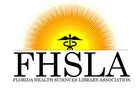 Dear Readers, This month, FHLSA Alert is pleased to feature an article by Stephanie Harris, MLS, AHIP. Stephanie's story showcases how valuable the skills acquired in an MLS program are and how a degree in Library Science can be used outside of a traditional library setting. Happy Reading! When I accepted a job at my current organization, I was hired as an embedded research librarian. My job was to do extensive literature reviews on designated topics to identify gaps in the research and to support the information needs of the PhDs, MDs, and research nurses in my department. My department is unique in that there is no bench or clinical research. It is really focused on behavioral research on whole-person health (mind/body/spirit/social connections) of patients, the healthcare workforce, and the greater community. You can read more about my department and original job experience here: Embedded Librarianship in a Unique Setting: Hospital-Based Whole-Person Health Research: Journal of Hospital Librarianship: Vol 19, No 1 (tandfonline.com)
And then came the restructuring. My position was going to be eliminated, but my leadership was (thankfully) eager to keep me around and they transitioned me into the role of novice research scientist. Though my professional career has always been focused on healthcare, starting in medical publishing and concentrating in medical librarianship, I was an English and journalism student in undergrad, and felt entirely unprepared to take on a role as a researcher. I immediately delved into the online world of research support and tried to learn research statistics by Googling and taking online courses (which is not the best way to learn statistics, by the way). I learned all I could from my generous colleagues. But truly, I found I knew more than I thought I did based on my experience critically appraising articles. I knew what contributed to a good study design. I knew how to recognize limitations. I was aware of how science is conducted and what I would need to be able to write up my study results. My first study was a survey study of nurses’ religious beliefs to see if there were any correlations with well-being and burnout within our faith-based organization. I wrote the protocol and the informed consent, used my skills with survey software to electronically capture the data, and with the support of nursing administration, launched my study in Central Florida. With the help of my mentors and staff statisticians, I navigated the data output, did my best to analyze what I was seeing, and drew conclusions. I authored two papers based on my small survey study and after many revisions and feedback from Reviewer #2 that almost made me cry, both were accepted for publication (see citations below). I have used my experience as a librarian to be able to find literature to support studies, to write well-referenced and organized papers, and to engage as an author on my first (still underway) scoping review. I find my strengths in being able to skillfully navigate the online environment, use technology, and quickly gauge relevance of articles have all been assets to me in my job. I’ve also realized that years of skimming through thousands of articles actually made an impression in my brain of what constitutes a good research paper. I have truly benefitted from knowledgeable and collaborative colleagues who have mentored me through my fledgling research career. I think that is a skill that librarians have as well: learning from each other. Although not technically a librarian anymore, I still engage in continuing education and professional organizations like FHSLA because I value what I learn from my librarian colleagues and I’m able to leverage that knowledge and those skills in my current career. Papers: Harris, S., & Tao, H. (2021). The Impact of US Nurses’ Personal Religious and Spiritual Beliefs on Their Mental Well-Being and Burnout: A Path Analysis. Journal of Religion and Health, 61, 1772-91. Harris, S. L., Green, J. F., Tao, H., & Robinson, P. S. (2021). Examining Associations with Mental, Well-Being and Faith in Nurses (LIFT). JONA: The Journal of Nursing Administration, 51(2), 106-113. Comments are closed.
|
Blog EditorArchives
March 2025
Categories
All
|

 RSS Feed
RSS Feed